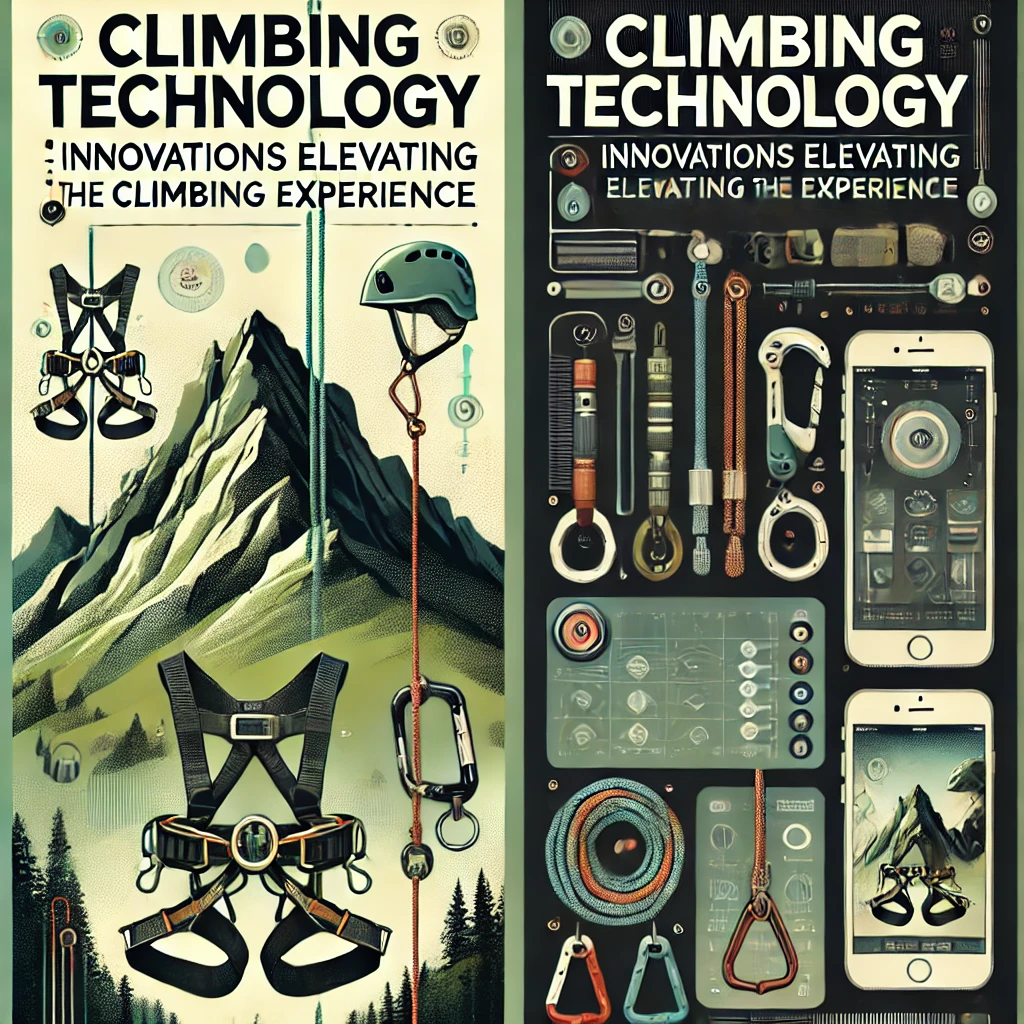Climbing is an exciting sport that challenges both the body and mind. Over the years, climbing technology has advanced, making the sport safer, more accessible, and enjoyable for enthusiasts of all levels. From harnesses and ropes to advanced climbing shoes, these innovations help climbers reach new heights. In this article, we’ll dive into the essential climbing technologies, how they enhance performance, and what every climber should know.
Table of Contents
What is Climbing Technology?
Climbing technology encompasses the tools, equipment, and advancements designed to improve safety, comfort, and efficiency in climbing. This technology includes everything from harnesses and ropes to carabiners and advanced protective gear, making it possible for climbers to scale cliffs, mountains, and rock walls more safely and confidently.
Why is Climbing Technology Important?
With the right climbing technology, climbers can reduce risks, protect themselves from falls, and enhance their performance. The advancements in this field have opened up the sport to more people and made it safer for everyone.
Essential Climbing Gear
Modern climbing equipment is built with durability, comfort, and safety in mind. Here’s a look at some of the most critical pieces of climbing technology:
1. Harnesses
Harnesses are essential for all climbers. They secure the climber to the rope, providing support and safety during ascents and descents.
Types of Harnesses
- Sport Harnesses: Lightweight and designed for sport climbing.
- Trad Harnesses: Offer more gear loops and padding for trad (traditional) climbing.
- Full-Body Harnesses: Provide additional safety, often used by beginners or children.
Harnesses are adjustable to fit snugly, ensuring both comfort and security.
2. Ropes
Climbing ropes are among the most vital pieces of climbing technology. These ropes are designed to absorb force, making them critical for fall protection.
Types of Climbing Ropes
- Dynamic Ropes: Stretchable ropes used for lead climbing, absorbing impact in case of falls.
- Static Ropes: Non-stretch ropes, typically used for rappelling and rescue.
The right rope can make a huge difference in safety and ease of movement during climbs.
3. Carabiners and Quickdraws
Carabiners and quickdraws connect the rope to the climber and anchor points. They’re essential for safe climbing.
Carabiner Types
- Locking Carabiners: Feature a locking mechanism for added safety.
- Non-Locking Carabiners: Lightweight and used for general climbing needs.
Quickdraws are pairs of carabiners connected by webbing, allowing climbers to clip the rope securely.
4. Climbing Shoes
Climbing shoes are specially designed for grip and support, allowing climbers to have better traction and control on the rock face.
Shoe Styles
- Neutral Shoes: Comfortable, suitable for beginners.
- Aggressive Shoes: Designed for steep and challenging climbs, providing a tighter fit for precision.
The choice of shoe style can impact a climber’s balance, grip, and overall performance.
5. Belay Devices
Belay devices are used by the climbing partner to manage the rope, ensuring the climber’s safety by controlling their descent and stopping falls.
Types of Belay Devices
- Tube-Style Devices: Simple to use and popular for beginners.
- Assisted-Braking Devices: Offer extra friction, making it easier to catch falls and control the rope.
Belay devices are a crucial part of climbing safety, allowing climbers to descend in a controlled manner.
Advanced Climbing Technology Innovations
As climbing grows in popularity, so does the development of new technologies. Here are some recent advancements in climbing technology that are making waves in the industry:
1. Smart Belay Devices
Smart belay devices use technology to improve safety. Some devices feature sensors that lock the rope in case of sudden falls, reducing the chances of accidents.
2. Wearable Climbing Trackers
Wearable devices now track climbing metrics like elevation, distance, and even calorie burn, providing climbers with valuable insights into their performance.
3. Eco-Friendly Climbing Gear
With a focus on sustainability, many climbing companies are now using eco-friendly materials for ropes, harnesses, and other gear. This shift helps reduce environmental impact while supporting sustainable climbing practices.
Safety Tips for Using Climbing Technology
- Regular Inspection: Check all gear for signs of wear before every climb.
- Proper Training: Learn how to use each piece of equipment correctly.
- Stay Up-to-Date: Keep up with new advancements and replace outdated gear.
Conclusion: The Future of Climbing Technology
Climbing technology continues to evolve, providing climbers with safer, more reliable, and efficient gear. From harnesses to eco-friendly gear, these innovations make climbing accessible to more people while prioritizing safety. As you explore the climbing world, embracing these advancements will elevate your experience, allowing you to reach new heights with confidence and security.
